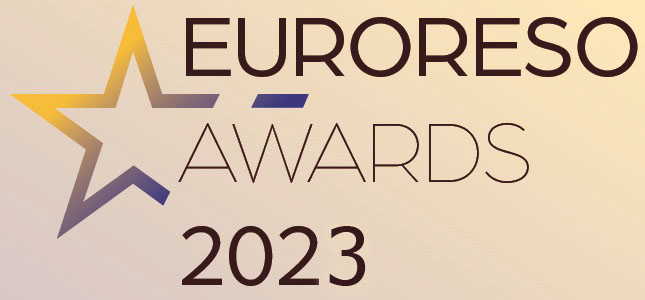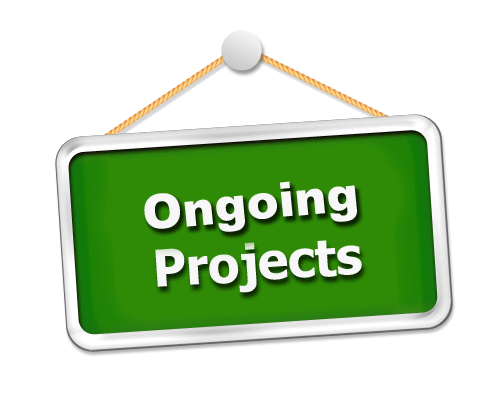PIN: EQF-PRAXIS AND INFORMATION NETWORK
SUMMARY
The EQF marks a new step for employees in Europe. Comparability and transparency will be important factors for the realization of employee interests. Trade unions and training providers understand themselves as partners and counsellors of employees and their interests. To match this responsibility the employee oriented organizations have to build up expertise concerning the EQF and its functioning and impact on bargaining, assessment of competences and permeability.
The role of trade unions is essential for the implementation of the EQF as they are mediators between the EQF and employees. Through their bottom up approach they stand for transparency, participation and democracy.
PIN- network comprises 15 partners and 25 associated partners from 14 countries. Best practices on EQF management and experiences from different cultures are pooled and aggregated. This not only contributes to upgrading of low qualified workers. It also contributes to more mobility and recognition of competences in due consideration on employee interests.
We want to better the situation of low qualified adults who are seven times less likely to participate in lifelong learning than those with high educational attainment.
Results: 2- 5 focus groups per country analysing EQF impact / 2-5 focus groups per country giving feedback on European strategy / 1 quality management system / 11 national impact analysis: overview about good practices+needs / 1 European strategy paper with 9 checklist / Training material and corresponding guidelines / 1 Learning Platform: online education and training material / 22 Workshops for multipliers (two workshops in each participating country) / About 330 trained multipliers (30 per country).
Impact: benefits of the EQF for employees will be disseminated / experts and external specialists can handle praxis EQF questions / better practice of EQF and accompanying instruments / empowerment of employee interests / participatory discourse and a critical perspective on EQF implementation.
Specific Objectives:
– Debating: A steered debate on how to build up, consolidate and disseminate expertise concerning the EQF and its consequences on European and national levels will be launched. It will focuss on transparency, equality of opportunities as well as equality between vocational and general education in daily dealing with the EQF.
– Researching: The network will analyse the EQF as an interdisciplinary subject which strongly affects employee interests on the following points and focus on low qualified workers: collective bargaining / Impact of learning outcome-approach for initial and further training / assessment and validation of non-formal and informal learning / data protection vs. transparency / Increase flexibility in training programmes (e.g. EC VET) / Permeability between general, vocational and tertiary education and training / Quality assurance within VET(EQARF) / Guidance and individual career development / Standards for developing new skill profiles due to future skill needs.
– Empowering: Through the elaboration of a European strategy, the linkage to European umbrella associations, experts will be empowered to support employee interests with regard to the EQF on European level.
– Connecting: By launching a community of practice by national and European workshops, by a learning and information platform as well as by study visits the network will set up an infrastructure on national and European level to exchange experience, to identify good practices to support an employee oriented interpretation, implementation and practice of the EQF.
– Advising: Actors of the network will use their expertise to sensitise and train union officials, external specialists and educational experts on general and crucial issues regarding the EQF.
Outcomes:
– Increase and strengthen an employee-oriented network on the EQF and on Recognition of non-formal and informal learning.
– Implementation of peer-group learning on the national level.
– Impact analysis on the influence of the EQF/RNIL in 12 countries.
– Development of a European strategy for an employee-oriented approach on using the EQF/NQF and on non-formal and informal learning.
– Learning platform for worker’s representatives, trade union officials, researchers, trainers and consultants to raise awareness of trade union actors for Recognition of non-formal and informal learning.
– Information material (Brochure and Guidelines incl. good practice examples), Website incl. more information material on the EQF and RNIL on the European and on the national level.
– Workshops for multipliers.
Website of the project: http://www.eqf-pin.eu/
PARTNERSHIP
Industriegewerkschaft Metall (Germany) – coordinator
Berufsfortbildungswerk des DGB, Competence Center EUROPA (Germany)
Instituto de Formación y Estudios Sociales – IFES (Spain)
IDEAS Institute (Ireland)
Konfederacija Sindikatov Javnega Sektorja Slovenije (Slovenia)
Österreichisches Institut für Berufsbildungsforschung (Austria)
SouthBirmingham College(United Kingdom)
Cofora BV (The Netherlands)
Unión General de Trabajadores del Pais Valenciano (Spain)
Provincia Autonoma di Trento – Ufficio Fondo Sociale Europeo (Italy)
Konfederacja Związków Zawodowych Metalowców Polsce (Poland)
Polish Teachers’ Union – Związek Nauczycielstwa Polskiego (Poland)
Unification of Lithuanian Metalworkers’ Trade Unions (Lithuania)
Hungarian Metalworkers’ Federation – VASAS (Hungary)
European Trade Union Institute – ETUI (Belgium)
Project lifetime: January 2011 – December 2013
The project is co-funded by the European Commission within the frame of the Lifelong Learning Programme – Leonardo da Vinci (Thematic networks).


